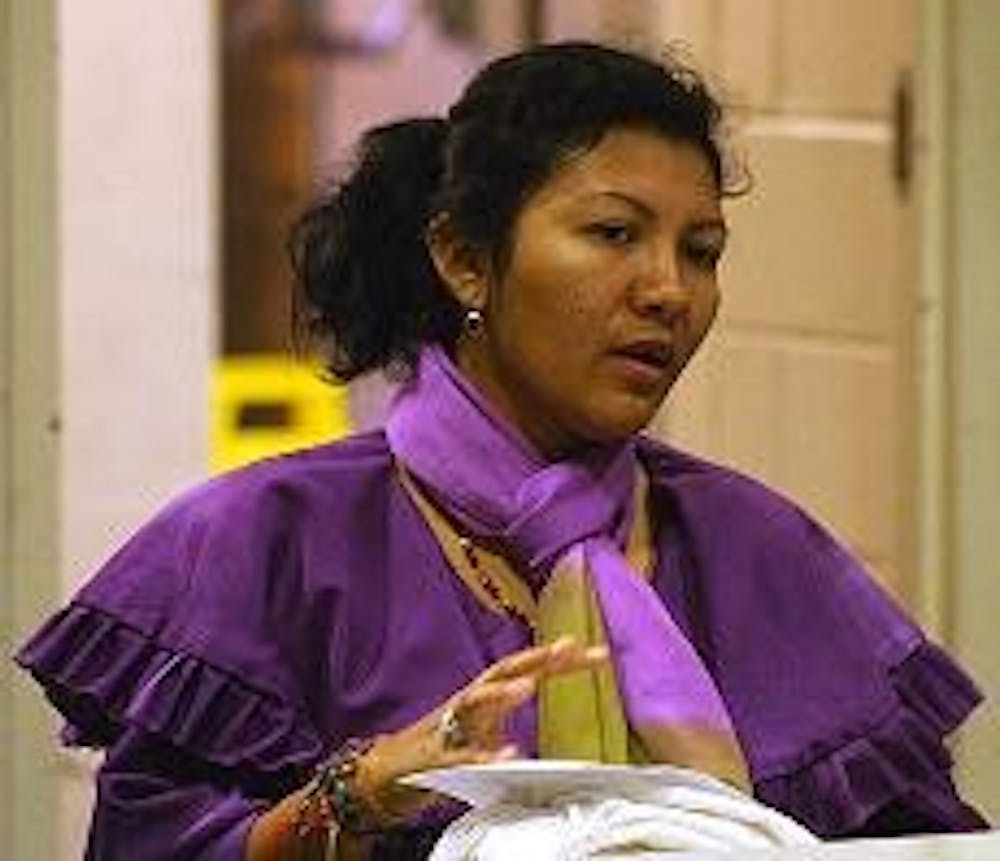Close ties between the Colombian military and paramilitary forces have led to mass human rights violations, said Debora Barros Fince, a human rights lawyer and native of the Way£u community, a indigenous population located in northern Colombia near Venezuela that was hurt by the paramilitary's actions.
"We believe that the president [of Colombia] is largely responsible for the crimes committed by the paramilitary," Barros Fince said through a translator.
There is a close relationship between the paramilitary and the military, and the paramilitary use arms that are purchased with international financial aid from the United States, she said.
While no definitive evidence states that the paramilitary and military are connected, Barros Fince said her aunt was assassinated when she and other indigenous people were going to be witnesses in a trial that identified members of paramilitary forces as also being members of the military.
Based on this assassination and other evidence Barros Fince said she believes "the military and paramilitary are the same."
Since 2002, Barros Fince said there has been a rise in the offenses committed by the paramilitary, including an increase in internal displacements and assassinations of union and human rights workers. The government has yet to recognize any of these offenses, and many paramilitary officers are given impunity, with most offenses being forgiven and forgotten, she said.
On April 18, 2004, the acts committed by the paramilitary personally touched Barros Fince when armed men entered her village and killed 12 women and children in order to take control of the territory. As a result, the inhabitants of the village, Barros Fince included, were forced to leave the region and move to nearby Venezuela.
The paramilitary's occupation of her village was motivated by its interest in protecting the multinational corporations connected with coal mining in the Way£u region of Colombia, she said.
According to Barros Fince, the paramilitary and corporations have had a very adverse affect on the Colombian environment. Coal mining is an extractive industry, which ruins the Colombian land, she said. In addition, wind carries the carbon into the air, water and food supplies, causing negative health effects.
"Our territory is our identity," she said. "Our land is our social pride."
Denouncing the companies' presence in Colombia and their practices has been the route to change that Barros Fince and the human rights organization she created, Organizaci¢n Way£u Munsurat, has pursued. So far, she says the company has yet to change their practices and the Colombian government continues to support the corporations.
Barros Fince invited students to join the organization and to commemorate the third anniversary of the massacre that occurred in her village in April. She said she hopes grassroots organizations among students and young people will be the best vehicle to change.
Nathan Weiss, a Master's of Public Administration candidate in the School of Public Affairs, said he spent time in both Bolivia and Chile and noted that countries in Latin America face similar conflicts with various industries.





